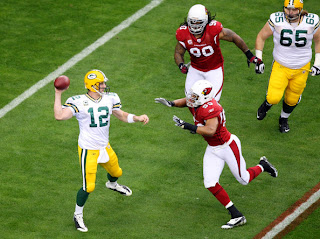If someone were to speak to a Mormon, and did a really good job of showing that the Book of Mormon isn't historically reliable, it wouldn't faze a Mormon much at all. Their certainty of the truth of Mormonism doesn't lie in objectivity - it lies in their personal, inner, gut-feeling of its truth! They use the phrase, "the burning in the bosom" a lot to express this inner-certainty. It's just an inner burning in their heart that confirms the truth of their their faith. Quite subjective, if you ask me.
But can believers be objective?
 Paul E. Little in his book, Know Why You Believe, shares that, "One questionable idea, sometimes
Paul E. Little in his book, Know Why You Believe, shares that, "One questionable idea, sometimes  advanced, is that the miracle stories [in the Bible] must be discarded because they are told by believing disciples and are therefore not objective."
advanced, is that the miracle stories [in the Bible] must be discarded because they are told by believing disciples and are therefore not objective."
Is this true? Since the believing disciples are the ones reporting the miracles of Jesus, does it mean that they're not valid witnesses? Does their eyewitness testimony get discredited because they believe what they saw, heard, and experienced to be real and true?
Would this same line of reasoning discredit victims of malicious crimes from testifying because of their prejudice?
Does this mean that eyewitness accounts shouldn't be presented in our courts of law, because they might have some sort of prejudice? Should we only allow the testimonies of people who were not eyewitnesses to be be examined when making a verdict on what happened in any given day, time, and event?


For objectivity's sake we should take in to account the testimony of the witnesses, regardless of if they were disciples or not. What matters is not their beliefs, but if they were telling the truth about what occurred. In the case of the disciples most of them faced the possibility of death to back-up the validity of their claims, much as witnesses today in our courts of law must face the penalty of perjury if they are not telling the truth on the stand.
Paul E. Little answers this dilemma by concluding, "The crucial question in each case is truthfulness, not proximity or relationship to the events."
But can believers be objective?
 Paul E. Little in his book, Know Why You Believe, shares that, "One questionable idea, sometimes
Paul E. Little in his book, Know Why You Believe, shares that, "One questionable idea, sometimes Is this true? Since the believing disciples are the ones reporting the miracles of Jesus, does it mean that they're not valid witnesses? Does their eyewitness testimony get discredited because they believe what they saw, heard, and experienced to be real and true?
Would this same line of reasoning discredit victims of malicious crimes from testifying because of their prejudice?
Does this mean that eyewitness accounts shouldn't be presented in our courts of law, because they might have some sort of prejudice? Should we only allow the testimonies of people who were not eyewitnesses to be be examined when making a verdict on what happened in any given day, time, and event?

For objectivity's sake we should take in to account the testimony of the witnesses, regardless of if they were disciples or not. What matters is not their beliefs, but if they were telling the truth about what occurred. In the case of the disciples most of them faced the possibility of death to back-up the validity of their claims, much as witnesses today in our courts of law must face the penalty of perjury if they are not telling the truth on the stand.
Paul E. Little answers this dilemma by concluding, "The crucial question in each case is truthfulness, not proximity or relationship to the events."























